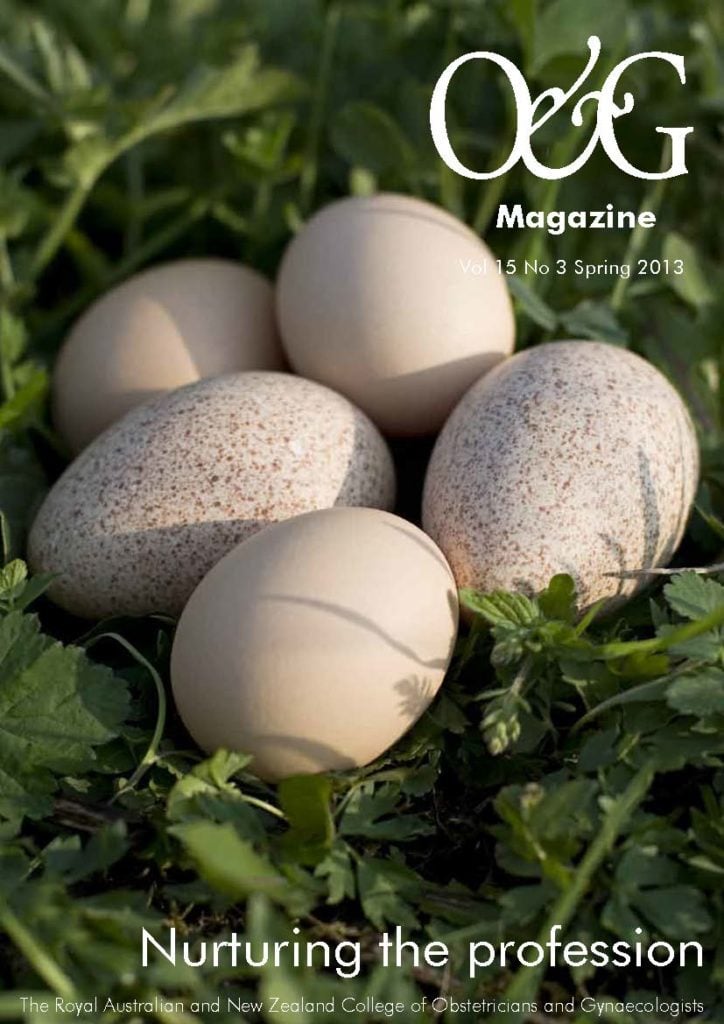Comparing major metropolitan maternity hospitals with the maternity services in regional and remote Australia is to compare apples with oranges.
Rural general practitioner Dr Sandra Mendel works in a kind of ‘tidal’ zone where the rural and metropolitan frequently overlap. Her practice is Apple City Family Medicine in Orange, New South Wales, where she shares care of her maternity patients with the base hospital, which delivers just over 900 babies a year. Orange has two visiting medical officer obstetricians and a recently appointed staff specialist obstetrician.
Its maternity facilities include a 12-bed inpatient ward; a four-bed, level two newborn care unit, currently accepting babies from 34 weeks gestation; and four birthing suites.
Orange hospital is also a referral centre for smaller maternity units in neighbouring towns – such as Cowra, Parkes and Forbes – where general obstetric services are provided by local GP obstetricians.
Dr Mendel shares the care of mothers-to-be with the hospital obstetricians and midwives. She said her practice of seven GPs (including a GP registrar) has a very positive, collaborative working relationship with the hospital staff: ‘The shared care works very well. And it is reassuring for our patients to feel that their care has continuity and cohesion.’
Dr Mendel said she was encouraged to pursue obstetrics by an inspiring mentor. She gained her DRANZCOG in 1997, and qualified in general practice a year later.
‘I had a fantastic mentor who was a GP obstetrician and was fortunate that the two obstetricians at the Orange hospital were both very encouraging and supportive,’ Dr Mendel said.

Dr Sandra Mendel finds the shared-care model works well for her patients in Orange, NSW.
‘For me, obstetrics is one of the nicest parts of general practice. The birth of a child is the most wonderful moment for the parents and everyone in their extended network of family and friends. Most mothers have relatively trouble-free pregnancies and deliveries. But each birth is special because of the profound effect that a new life has on so many people.’
She said that when she arrived in the district, in 1996, there were very few full-time female doctors. Today, though, obstetrics seems to have a balance of female and male practitioners.
The mother of two splits her professional time between her GP practice and her role as Director of Education with the Australian College of Rural and Remote Medicine (ACRRM).
‘The College is a strong advocate of rural generalism, obliging its aspiring Fellows to gain specialised training in disciplines such as obstetrics, anaesthetics, surgery and emergency medicine as a mandatory part of its general practice primary curriculum.
‘Smaller communities that cannot support a resident obstetrician can sustain one or more rural generalists whose scope of practice includes obstetric qualifications,’ Dr Mendel said. ‘So specialist and generalist obstetricians each play an important role, and there is keen demand for each.’
Dr Mendel is an accredited GP supervisor of registrars and medical students on placement in her practice. She wrote her Masters of Medical Education thesis on external clinical teaching.
Obstetrics was one of the founding specialised training areas in the ACRRM Primary Curriculum. About 20 per cent of current Fellows of ACRRM have obstetrics and indications are that about the same percentage of registrars are choosing obstetrics as their advanced specialised training component.
The long-standing working relationship between RANZCOG and ACRRM continues through the Joint Consultative Committee on Obstetrics, and the full-day workshop that RANZCOG presents each year at ACRRM’s annual conference (Rural Medicine Australia).
The two colleges also manage the General Practice Procedural Training Support Program on behalf of the Commonwealth Government. This program aims to improve women’s health services in rural and remote regions by providing grants to GPs to gain advanced anaesthetics and obstetrics skills. RANZCOG manages the obstetrics grants while ACRRM manages the anaesthetics grants.
ACRRM has also developed the one-day Rural Emergency Obstetrics Training (REOT) workshop for rural doctors with little or no special training in obstetrics.





Leave a Reply